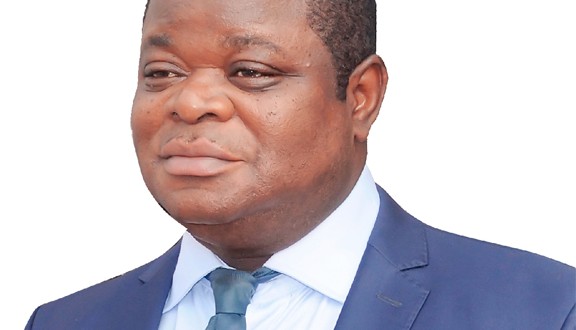Professor of Economics at the Institute of Statistical, Social and Economic Research (ISSER), Professor Peter Quartey says despite his expectation of positive macroeconomic performance in 2019 government must be disciplined in the last quarter of 2020 not to derail the gains.
Over the past 30 years, Ghana’s budget has been in deficit every single year.
The deficit to GDP ratio has ranged from the lowest level of 1.3 percent in 1991 to the highest of 11.5 percent in 2012, with the worst performances coming in election years excerpt 2004.
In an interview with Citi Business News Professor Quartey called for extra effort on the part of Government to ensure that the fiscal indiscipline witnessed in election years is not repeated in 2020.
“We have most often remained disciplined so going forward, 2019 to first half of 2020 we’ll remain disciplined. My caution or worry will be the last 3 or 6 months of 2020 (the election year). Its one thing I don’t know how well prepared we are to deal with in terms of the discipline”.
He was of the view that if Fiscal Responsibility Law and the Fiscal Responsibility Council work effectively it may help in addressing this fear of government attempting to overspend.
“In 2016 we were still with the IMF yet we overspent and as such we overshot our target. So the last 3 months of an election year for me is very crucial and I’m yet to be convinced that we have what it takes to remain disciplined in the last 3 months of 2020.”
President Akufo-Addo on the IMF
President Nana Akufo-Addo while delivering his third State of Nation Address to Ghanaians in Parliament, reiterated his government’s commitment to maintaining the needed discipline to ensure that Ghana does not return to the International Monetary Fund (IMF) for the 17th time.
A team from the IMF in the February completed the 7th and 8th reviews under the Extended Credit Facility program which Ghana entered into in 2015.
An approval from the IMF board in March should lead to Ghana exiting the program after April 3rd.
But during his State of the Nation Address, President Akufo-Addo stated that in order not to repeat the cycle of returning to the Fund immediately after exiting, Ghana will have to ensure that systems are put in place like the Fiscal Council, which are to ensure discipline in the management of the economy, are as effective as possible.
“We’ve just concluded the program with the IMF and with continued discipline, we shall sign off from the deal in April. This is the 16th time Ghana has had to go to the IMF in its history. Mr. Speaker, we cannot make the progress we all desire unless we are consistent and disciplined in the management of our economy. We have gone through another round of painful impositions to get to where we are today with healthy fundamentals.”
The President added that a repeat of actions that led to a return to the IMF in the past will not be repeated under his government.
IMF final Review
Ghana’s program with the IMF for US$918 million which was approved on April 3, 2015, aims to restore debt sustainability and macroeconomic stability in the country to foster a return to high growth and job creation, while protecting social spending.
The government has given assurances that the economy will remain resilient and robust even after the International Monetary Fund (IMF) program is over.
Speaking exclusively Citi Business News after the final meeting, Chairman of the Finance Committee of Parliament Dr. Assibey-Yeboah said he is confident Ghana will successfully exit the extended credit facility program after April 3rd.
“Clearly Ghana is exiting the program after April third as already agreed upon. You’ll recall that we went to the fund for policy credibility. So if you exit they have to sign you off. We want a clean bill of health, so the IMF team will go to the board at the end of March after which the board will decide as to whether or not Ghana has successfully completed the program.”
Throughout the various reviews, Directors of the IMF have commended Ghana on a number of things, welcoming the deceleration in inflation as well as the progress made in the strengthening the banking system, in particular through the approval of timebound recapitalization plans for undercapitalized banks.
On the things that need to be worked on, the Directors emphasized the need to tackle energy sector inefficiencies, particularly improving the management of the state owned enterprises (SOEs). They also advised that ongoing debt restructuring efforts are helpful but are no substitute to stemming the SOEs’ financial losses.
While highlighting the progress Ghana has made under the program, Dr. Assibey-Yeboah went on to share some of the benefits of successfully exiting the program for Ghana.
“If we successfully exit the program, then we are found to be credit worthy, it affects our ratings, it affects the cost of borrowing and we are able to tap into other markets because the IMF says these people are credible and they are credit worthy.”
He finally added that apart from the disbursement of the final tranche of about $118 million from the IMF, Ghana was looking at receiving other disbursements from bodies like the World Bank as a result of successfully exiting the program.
–
Source: citibusinessnews.com





